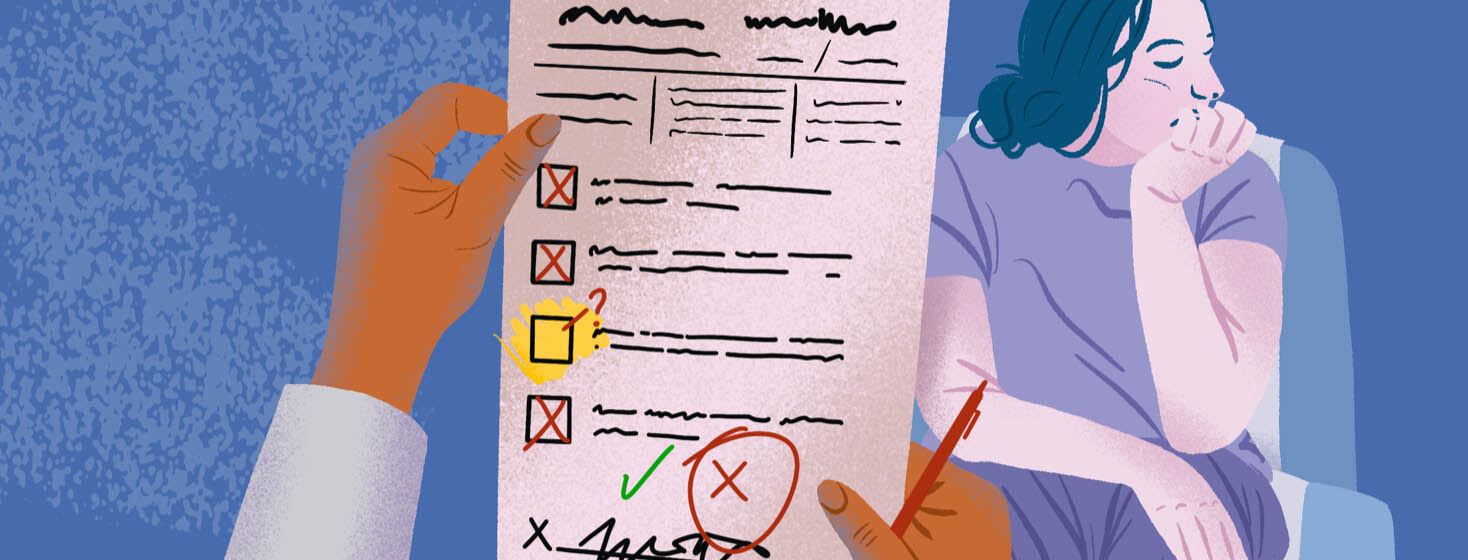Bad Timing: My Struggle to Be Diagnosed with PsA
Even after my doctor confirmed I had juvenile arthritis, he struggled to figure out what subtype I had. For a long time, I was diagnosed as having juvenile idiopathic arthritis (JIA), which is the most common form of JA in children. But still, he didn't seem happy with that diagnosis. Some of my symptoms were out of the ordinary for JIA, but he still couldn't put his finger on it.
A few years later with a new provider more familiar with psoriasis, low and behold, we discovered I had juvenile psoriatic arthritis. Finally! My diagnosis seemed to fit me to a T and explained the issues I was having that aren't typical with JIA.
Reasons for delayed diagnosis
There are many reasons why my diagnosis took such a long time including financial barriers. But one of the most significant issues was the timing of my symptoms. Signs pointing towards psoriatic disease showed up later for me, which meant I initially didn't meet some of the criteria to be diagnosed with PsA.
Like me, you may struggle to receive a diagnosis if you aren't aware of these two things.
Featured Forum
View all responsesYour joint symptoms precede psoriasis
One reason my diagnosis wasn't apparent is that I didn't have psoriasis on my skin. After doing some research, I found out it isn't uncommon for children. According to the National Psoriasis Foundation, up to 50% of children develop psoriatic arthritis before developing psoriasis. While more unusual in adults, it still occurs in about 10% of people with PsA.
I wasn't the first or the last to struggle to get their diagnosis due to having clear skin, despite having other symptoms of psoriatic disease. Alternatively, you may have dealt with undiagnosed psoriasis. While I don't have stats on how often that occurs, I have heard about this time and time again.
You aren't aware you have a family history of psoriatic disease
People with immediate relatives who have psoriasis are more likely to be diagnosed with psoriatic disease. And I have a relative with psoriasis, my mother.
But, it took time to meet that criterion because I had been dealing with arthritis for some time before her psoriasis came. She was incorrectly diagnosed with eczema at first, and it was only after her psoriasis diagnosis that we started to put the pieces of the puzzle together.
Other symptoms can indicate a PsA diagnosis.
While having psoriasis and an awareness of family history helps, those aren't the only two ways to confirm a diagnosis. People with PsA cope with unusual symptoms, such as sausage fingers and toes, that don't often occur in other forms of arthritis.
In my case, I had other signs that pointed to PsA which became more clear with context. Despite not developing psoriasis on my skin, I did have psoriatic nails. It was one of the only visible symptoms of psoriatic disease and, from what I understand, is an indicator that someone is more likely to develop PsA. I was also coping with enthesitis in my feet, another hallmark symptom of PsA.
Start a Forum
With diagnosis comes relief
Upon receiving my diagnosis, everything clicked. All these symptoms finally made sense! Not only was it helpful medically, but it also helped me feel better emotionally.
It felt good to know that these weird symptoms weren't all in my head; there was a reason why my case was so different from others. And knowing my accurate diagnosis made it easier to find support groups, resources, and online communities, like this one.

Join the conversation